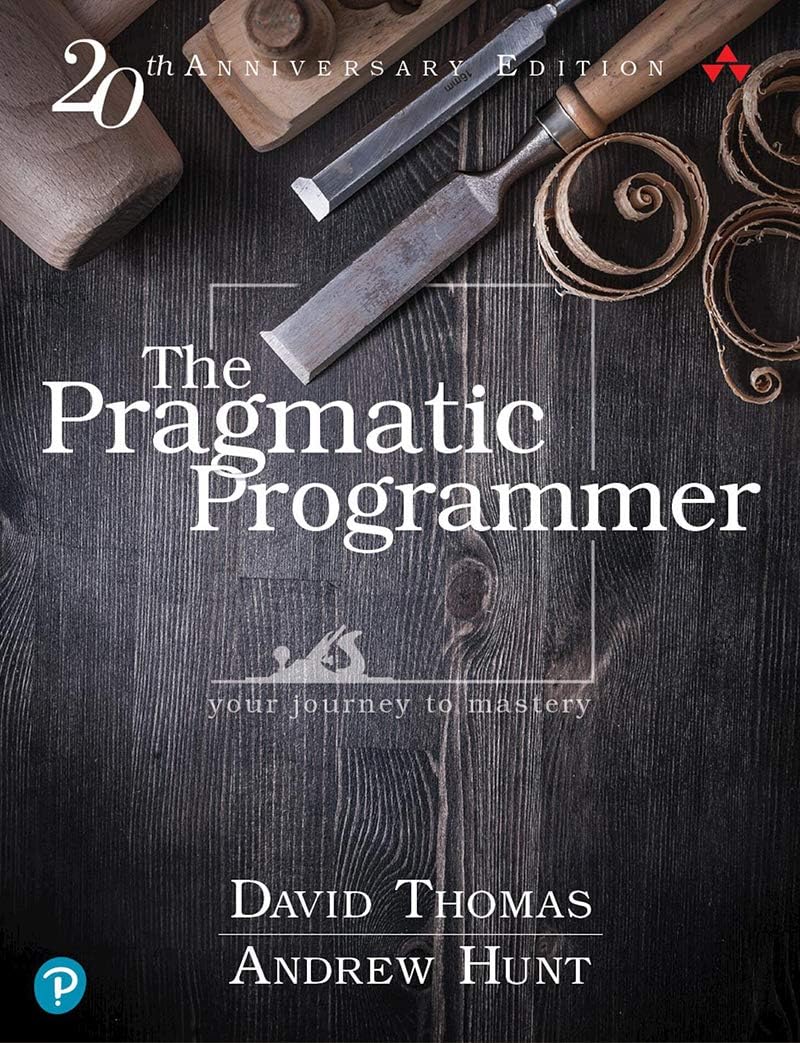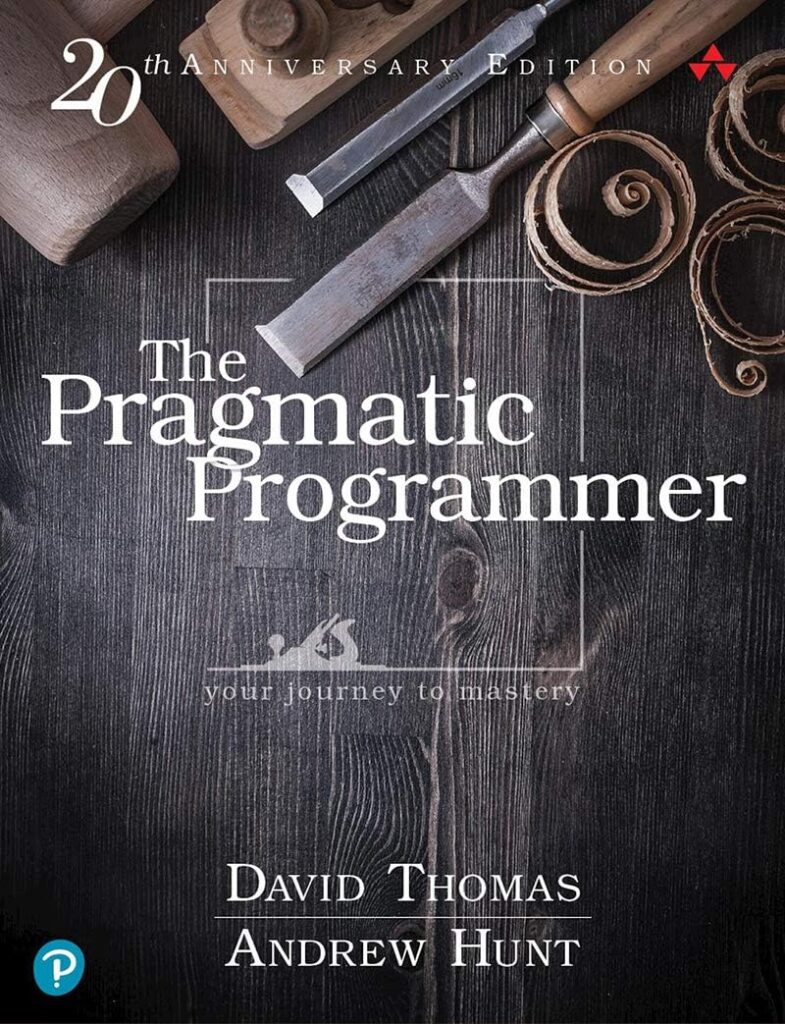
What happens when you blend a wealth of experience with practical advice for today’s programming challenges? That’s exactly what I found in “The Pragmatic Programmer: Your Journey To Mastery, 20th Anniversary Edition (2nd Edition).” This book is a staple for anyone serious about honing their craft in the tech world, and it certainly did not let me down.
The Essence of Pragmatism in Programming
I’ve always believed that software development should be about practicality and efficiency, and this book embodies that philosophy. The authors, Andrew Hunt and David Thomas, emphasize the importance of being pragmatic in our approach, which resonates with my experience in a fast-paced development environment.
Understanding Pragmatism
Pragmatism, in this context, refers to finding solutions that work, rather than getting trapped in theory or dogma. The authors encourage us to adapt to the problems at hand, which is something I’ve found essential throughout my career. They provide actionable tips that make it easy to implement the concepts right away.
A Refreshing Take on Software Development
As I flipped through the pages, I found the 20th Anniversary Edition refreshing. It isn’t just a rehash of the original but a thoughtful update that includes new perspectives on modern development practices.
Relevance to Current Technologies
Technology evolves so rapidly, yet the principles in this book apply broadly. The addition of topics like agile methodologies and the ever-present need for maintenance and refactoring shows their commitment to keeping the content relevant.
Aligning with Modern Practices
As someone who navigates various development environments, I appreciate how the authors have aligned fundamental concepts with contemporary practices. They discuss everything from user experience to the structure of code, ensuring that even seasoned pros can find new insights.
Adapting to Change
In programming, change is the only constant. I cannot stress enough how important it is to embrace it, and the authors heartily agree.
Continuous Learning
The book champions the idea of continuous learning. They provide resources and tools to inspire this mindset. I’ve personally found that investing in my knowledge leads me to more efficient solutions and helps me keep my skills sharp.
Techniques to Handle Change
One of the standout sections is about dealing with unexpected changes in projects. The authors share their experiences and suggest practices such as using version control effectively, which I found incredibly valuable. They walk through examples that I could relate to firsthand.
Tools of the Trade
A solid understanding of tools can significantly enhance a programmer’s workflow. Hunt and Thomas introduce several tools that have become staples in my arsenal.
Embracing Version Control
The way they illustrate version control, particularly Git, resonates deeply with the challenges I’ve faced in collaborative environments. They (rightly) argue that understanding version control is not just for managing code but also for making my workflow smoother.
The Importance of Debugging Tools
Their discussion on debugging tools and strategies opened my eyes to several new approaches. It inspired me to rethink how I tackle bugs – it’s not just about fixing them but understanding their root causes.
| Tool | Description |
|---|---|
| Version Control | Essential for managing changes and collaboration. |
| Debugging Tools | Helps isolate and fix issues more efficiently. |
| IDEs | Integrated Development Environments streamline coding. |
| Automation Tools | Reduces repetitive tasks and enhances productivity. |
The Art of Communication
Communication is key in programming, and this book doesn’t shy away from that reality.
Collaborating with Teams
What stood out to me is the perspective on team dynamics. The authors emphasize that developing software is a collaborative endeavor, and clear communication is vital. I found their strategies for improving communication in teams particularly useful.
User-Centric Thinking
They also encourage a user-centric approach. I’ve learned that understanding the user’s needs greatly impacts the effectiveness of our solutions. Focusing on user experience shouldn’t be an afterthought but rather an integral part of the development process.
Emphasizing Best Practices
There’s wisdom in adopting best practices, and this book is brimming with them.
Coding Standards
The importance of maintaining coding standards cannot be overstressed. I often refer to best practices when writing code because they ensure that my work is coherent and manageable for both myself and my colleagues.
Refactoring
Refactoring is another critical practice discussed in the book. I’ve found that continually improving existing code leads to better long-term results, and the authors provide clear guidelines on how to do it effectively.
Taking Responsibility
Being a good programmer entails taking responsibility for the code we produce.
Ownership of Code
Hunt and Thomas emphasize code ownership, and this struck a chord with me. It’s not enough to just get the job done; I need to be proud of my work. This mindset has driven me to put more care and attention into each project I tackle.
Understanding Consequences
They also highlight the importance of understanding the impact of our code, both good and bad. This lesson nudged me to be more mindful of the long-term implications of my decisions.
Different Perspectives on Software Development
One of the most alluring aspects of this book is its diverse perspectives on various programming philosophies.
Agile vs. Waterfall
The discussion surrounding different methodologies like agile and waterfall enlightened me. Although I’ve worked within agile frameworks, re-reading these principles helped solidify my understanding of when and how to apply different strategies depending on project requirements.
Pair Programming
I appreciated the insights on pair programming, which I often found to be a surprisingly effective way to improve productivity and skill sharing within teams. The authors articulate the benefits well, prompting me to consider it more regularly in my workflow.
Reflection on the Journey
Reflecting on my own journey through software development, I found that the book resonates on a deeply personal level.
Learning from Mistakes
A key takeaway is the importance of learning from mistakes. The authors outline several missteps they’ve encountered, and reading through these paths reminded me that failure can lead to growth if I approach it as a learning opportunity.
Building a Portfolio of Skills
I’ve continually built my knowledge base, and Hunt and Thomas suggest doing the same. They encourage creating a portfolio of skills and experiences to better navigate the shifting landscape of software development—a strategy that I’ve put into practice.
The Pragmatic Programmer Mindset
Adopting a pragmatic mindset is essential for any developer.
Being Resourceful
Their emphasis on resourcefulness hit home. I’ve benefited immensely from thinking outside the box, whether that means finding workarounds for bugs or learning new technologies on the fly.
Adaptation and Agility
The book underscores the need for agility in programming. I’ve had my share of last-minute changes and understanding the need to quickly adapt has become a critical skill for me.
Final Thoughts on the Journey to Mastery
Coming full circle, mastering programming is indeed a journey, not a destination.
Value of Community
This book emphasizes the value of the community and collaboration. I’ve always found that exchanging knowledge and experiences with fellow developers enriches my understanding and sharpens my skills.
My Empowered Future
Thanks to the insights I’ve gained from “The Pragmatic Programmer,” I feel empowered to further my journey toward mastery in software development. The combination of practical advice, timeless principles, and contemporary relevance makes this book a must-have on my shelf.
In wrapping up my thoughts, it’s clear that this book isn’t just about programming; it’s about the mindset that helps shape a successful career in technology. As I continue to navigate my path, I know that the lessons learned here will serve as valuable guidelines that I can apply in countless situations.
Disclosure: As an Amazon Associate, I earn from qualifying purchases.

